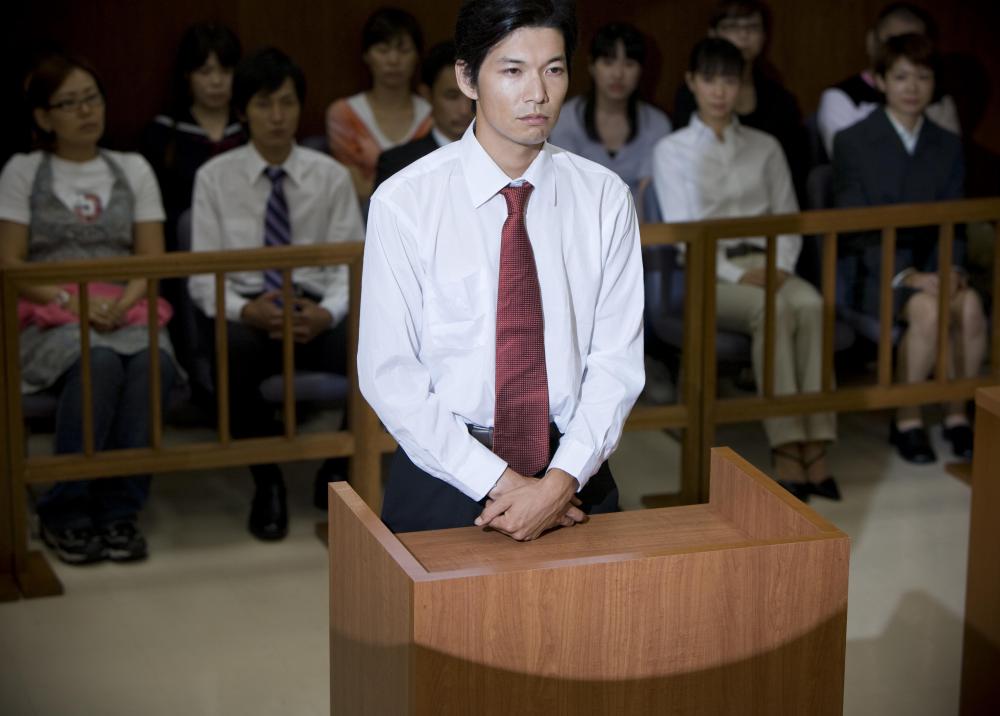At WiseGEEK, we're committed to delivering accurate, trustworthy information. Our expert-authored content is rigorously fact-checked and sourced from credible authorities. Discover how we uphold the highest standards in providing you with reliable knowledge.
What is Due Process?
In the United States, due process refers to a set of established legal principles, derived from the Constitution, that seek to protect the rights of citizens. This is done to ensure that government treats individuals fairly and does not abuse its power by acting against its citizens in an arbitrary, oppressive, or capricious manner. This concept is derived from the Fifth Amendment of the Constitution, which states that no one shall be deprived of “life, liberty, or property without due process of law.” The 14th Amendment uses identical language to impose a similar obligation on all of the states.
At its most fundamental level, due process prohibits the government from taking action against an individual that would result in a loss of liberty or property, without first affording that individual notice of the pending action, and an opportunity to be heard. The scope and applicability of these standards, with regard to government action, can range from situations in which the deprivation of life or liberty is severe — such as a case in which a defendant is accused of murder — to the more mundane, like an opportunity to challenge a traffic citation.

In each case, before a final determination is made, the government must provide an individual, through judicial or administrative procedures that are fair and impartial, the ability to challenge the state action. In general, the more severe the deprivation of liberty, the more rigorous the due process procedures afforded must be.
Another fundamental tenet of Constitutional due process is that laws enacted by a legislative body must be applied, and enforced, in an equal and non-discriminatory manner. Such requirements are manifested most notably in the legal procedures established in the criminal justice system. Thus, due process procedures for those charged with a crime would include the right to be represented by counsel throughout the proceedings, the right to cross-examine witnesses who have testified against him, and the right to a trial by an impartial jury of his peers. In order for criminal statutes to pass Constitutional muster on these grounds, the law must be sufficiently clear so that citizens understand the specific conduct that is prohibited. A law that fails to meet this standard, because it is too vague, would be unconstitutional.
Due process safeguards apply, as well, to any state action that would deprive individuals of a property interest. For example, government may not take someone’s property by eminent domain for a public purpose without compensating the property owner for the fair value of his land. In addition, local municipalities must afford individuals the right to challenge, through an established administrative proceeding, the manner in which their property was assessed for property tax purposes.
AS FEATURED ON:
AS FEATURED ON:











Discussion Comments
SurfNturf-Due process rights really mean or refer to the US constitutional laws. This means that people can not be jailed indefinitely like they could in other countries.
However, in the school system a student due process or a due process complaint pertains to the evaluation or placement of a child in an educational system.
The parent of the child or a social agency can form these complaints. This is what is referred to as the IEP due process. The IEP stands for the individual educational program. This is usually educational programming that is specific to special education students.
Judicial due process is something that is unique the United States legal system. This guarantees that anyone who is accused of a crime will not only receive the information regarding the exact charges that pending against them, but they will also be afforded the opportunity to receive a jury trial.
In addition, an attorney would be provided for him or her if they can not afford to pay for an attorney on their own. This is what is referred to as due process rights.
Post your comments